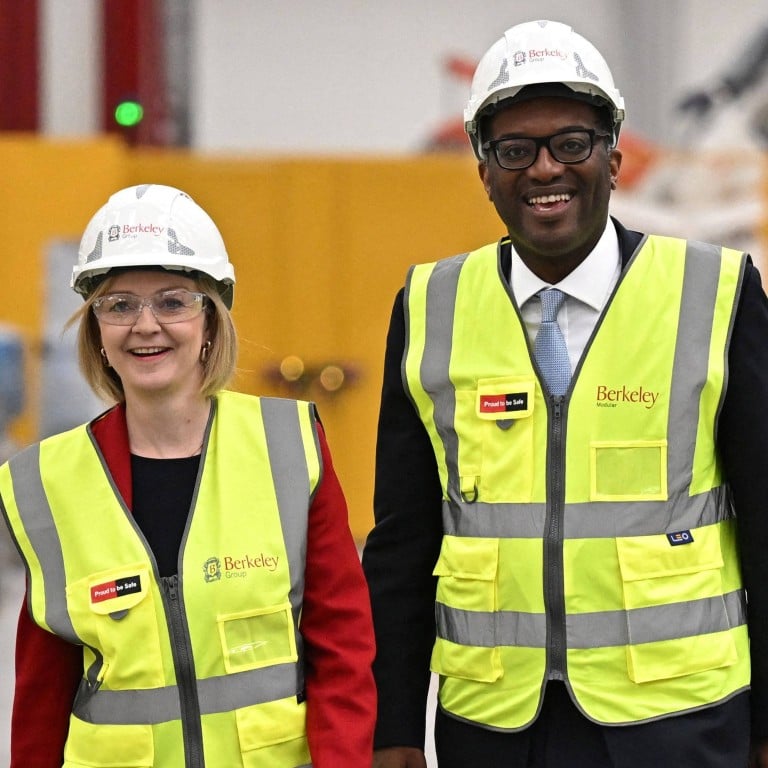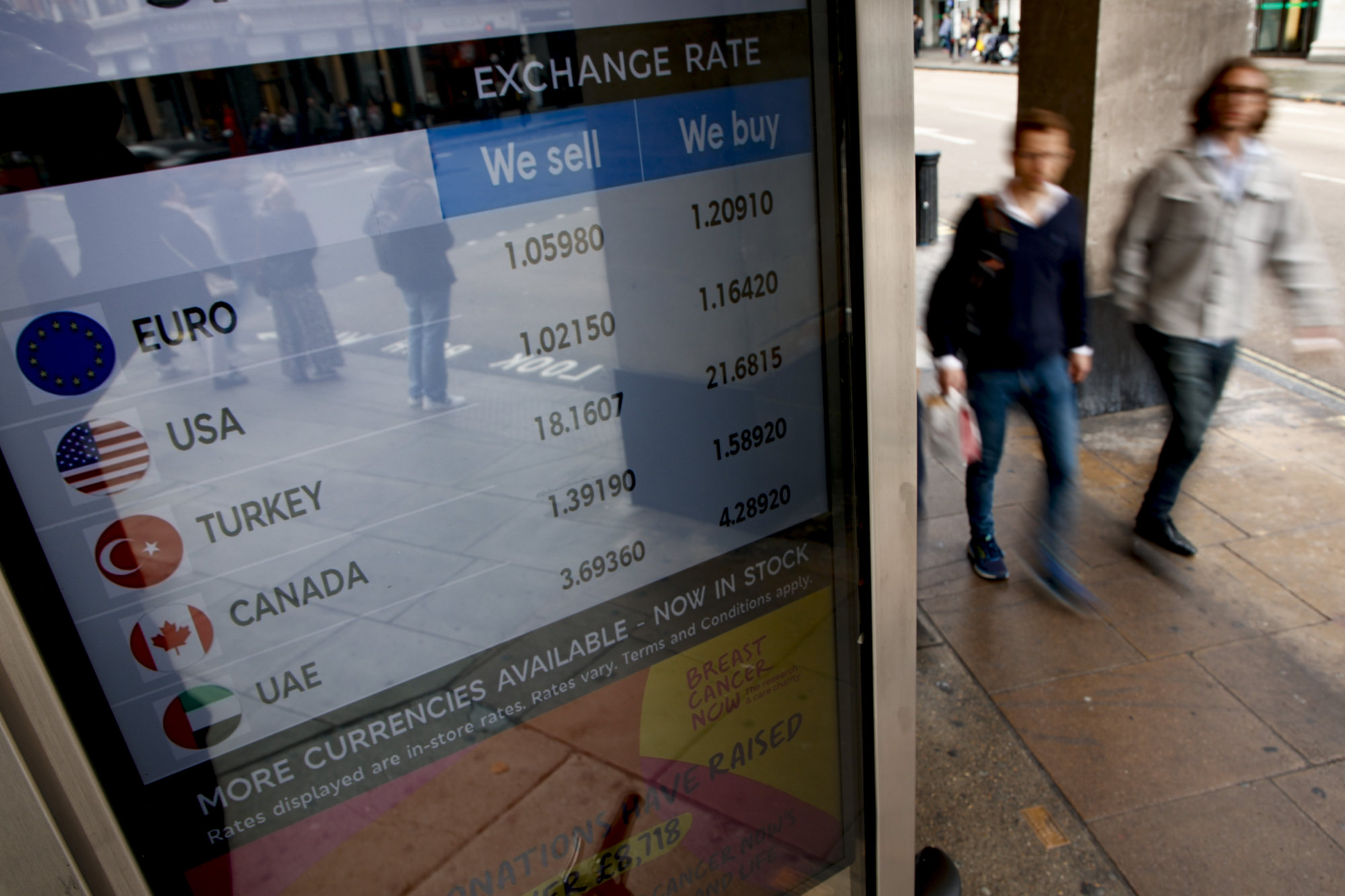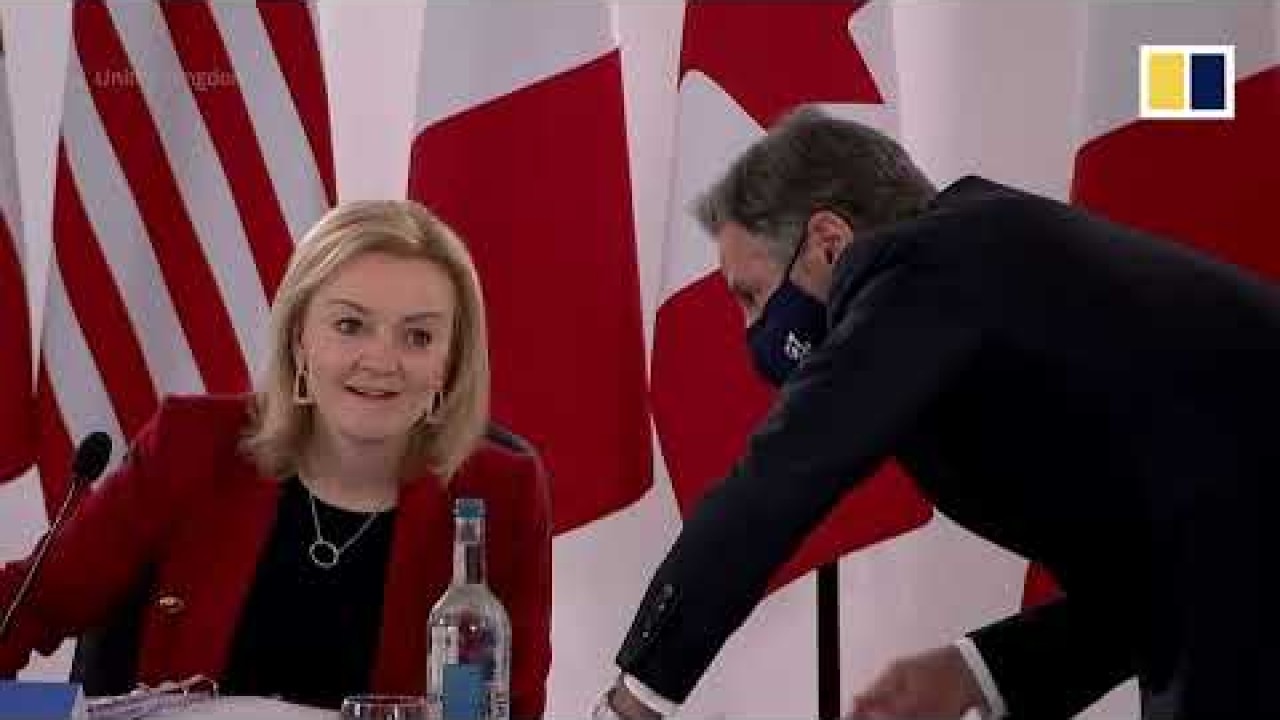
UK budget debacle could turn the electoral tide against Liz Truss and the Tories
- The budget crisis is the worst possible start to Truss’s premiership, fuelling concerns about the leadership’s political and economic judgment
- The odds appear to be growing that the Conservatives could lose a large number of seats at the next election and cede control to Labour
The Bank of England will hope the initial market panic eventually subsides as investors unpick the implications of Kwarteng’s budget. Yet, there is also a significant risk that the central bank and the government will lose control of fast-moving events.
In a sign that international policymakers are growing increasingly alarmed by the recent turmoil, Raphael Bostic, the president of the Atlanta Federal Reserve, spoke out on Monday. He said the sell-off in the pound reflected rising uncertainty about the direction of the UK economy, adding to concerns last week from former Treasury secretary Larry Summers.
While Kwarteng must have anticipated a negative market reaction to his budget, he clearly did not appreciate the full depth of investor angst. This was a big oversight on his part; it has been clear for some time his announcement could trigger a serious financial meltdown.

It is not 100 per cent clear why Kwarteng refused to listen to such warnings. Neither is it clear why he decided to sack the Treasury department’s permanent secretary Tom Scholar, who might have been one key person to give the new government constructively critical counsel over its fiscal options.
Having dug himself into a deep political hole, Kwarteng now has the massive challenge of getting out of it. On Monday, he failed to reassure jittery markets with a promise that he would outline the government’s debt-reduction strategy in a statement at the end of November.
Britain leading the way as world enters an era of ‘omnishambles’
Politically, the budget debacle is the worst possible start to Truss’s time as prime minister, and there is already significant angst among Conservative members of parliament about the political and economic judgment of the new administration. In this context, Kwarteng’s political future could still be in jeopardy in coming months. While Truss will not throw him overboard without a real fight, this is still a significant possibility unless the finance minister’s package delivers clear growth dividends.
The chief beneficiary of Truss’s travails is likely to be the Labour Party, which is holding its annual conference in Liverpool. A new poll released Monday from YouGov put the opposition party some 17 points ahead of the Conservatives, its highest lead since then-prime minister Tony Blair’s second landslide election victory in 2001.
While Labour is taking nothing for granted given the volatile political mood, there is a growing sense in the party that the tide could be turning against the prospects of the Conservatives winning a historic fifth straight term of office. Some comparisons have been made between this month’s events and the “Black Wednesday” crisis in September 1992, when the Conservative government of then-prime minister John Major was forced to raise interest rates after the failure of his economic strategy.
No political era is identical to another, and 1992 has key differences as well as similarities with 2022. However, the odds appear to be growing that the Conservatives could lose a significant number of seats at the next election and that Labour could once again emerge as the largest party for the first time since the governments of Blair and Gordon Brown.
Andrew Hammond is an associate at LSE IDEAS at the London School of Economics


